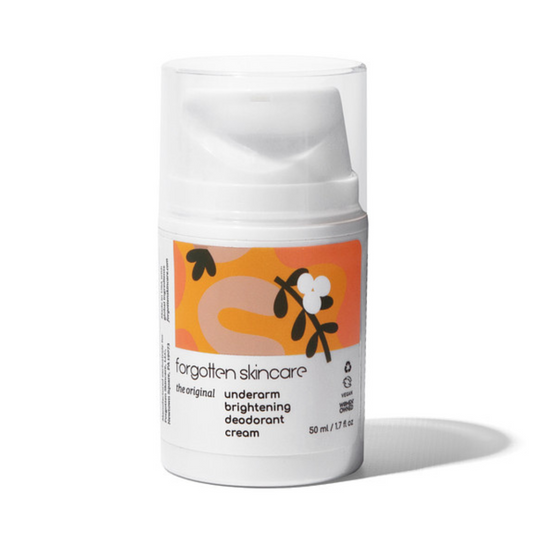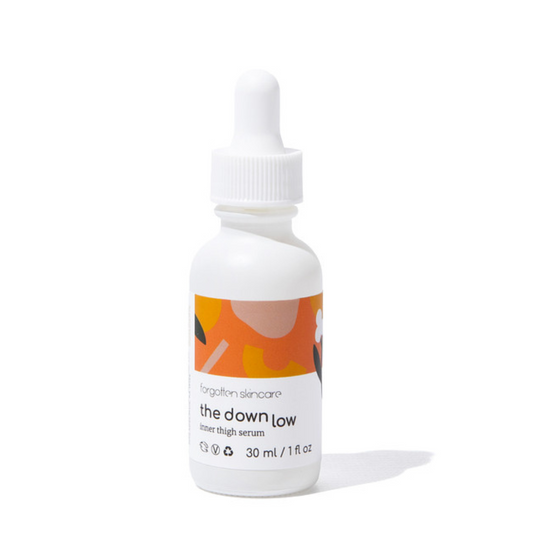Dear Mama-To-Be,
You’re expecting a little bundle of joy and your body is definitely going through some changes. Stretch marks, swollen feet, hair growth, and of course, weight gain. These are all the things we hear pregnant women and mothers talk about constantly. I feel you. When I found out I was pregnant, I just knew these things were going to happen to me. I felt resigned, but also excited (especially when it came to the hair growth). I knew these were the signs of motherhood, little changes that told me my beautiful baby was on her way. Even though I was not specifically looking forward to my ankles reaching the width of a can of beans, I was expecting it.
One thing I was not expecting was the hyperpigmentation. I knew a linea negra would form below my belly button (the dark line that’s a beautiful addition to many a-bump photo), but the patches of skin that darkened elsewhere during my pregnancy came as a shock to me. In my head, I questioned all of the mothers I knew. “Why had no one told me?” This side effect wasn’t mentioned in the YouTube videos or the articles I read. It wasn’t until recently that I realized that I’ve barely talked about it myself, despite the betrayal I felt at the lack of heads-up I received. That changes now. Here’s your heads up.
So why does no one really talk about it? My guess is it’s linked to embarrassment due to how much of the realities of pregnancy are still generally a taboo-talking topic. Pregnancy hyperpigmentation also usually occurs in very private places-- your underarms, inner thighs, areolas, and what women of times past called your “unmentionables.” Increased hyperpigmentation during pregnancy is normal and natural, and happens to many more women than you might think. Let’s get into the science of it.

Why does hyperpigmentation occur?
Melanin is the natural pigment found in our bodies that gives color to our hair, eyes, and skin. When a woman becomes pregnant, her body experiences many endocrinological and hormonal changes. These changes often result in an increase in melanin, causing certain areas of her skin to become darker. When this darkness occurs on surface areas like your face or arms, it’s called melasma. These elevated melanin levels can also cause places that are naturally more melanin-rich (areolas, underarms, inner thighs) to become even darker. These places also experience a lot of friction, so their melanin-production capabilities are basically supercharged. This type of hyperpigmentation is most common in women of color, who generally have more melanin present in their skin from the jump.
If you’re really concerned about the darker patches of skin, don’t worry. Much of the hyperpigmentation will fade sometime in the year after you give birth or when you finish breastfeeding. But it’s also completely normal for it to not fade entirely. You can help minimize hyperpigmentation by trying the following tips and tricks.
- Wear sunscreen when you go outside, even on cloudy or rainy days
- Use skin products formulated for sensitive skin like The Original Underarm Brightening Cream.
- Stop using aluminum or baking soda based deodorants that can cause irritation
- Research prenatal vitamin options that contain folate, which helps right hyperpigmentation
- Limit waxing often to avoid inflammation and an increase in melanin production
- Try clean skincare products that include ingredients like uva ursi extract, vitamin C and salicylic acid.

As always, consult with your doctor to make sure the product your using is right for you.
Going forward, I will make it a goal of mine to discuss this aspect of pregnancy more frequently. It’s another beautiful sign of everything our bodies go through to create life, so it shouldn’t be kept hushed up out of embarrassment. Also, talking about it more may help save a mom-to-be from the shock of how dark her butthole has gotten third trimester. It’s really our duty to be candid.
So mama, don’t stress about those dark patches. They’re completely normal and common and they do fade in time.
All the best,
Sola, Creator of The Mama & Mini Show








